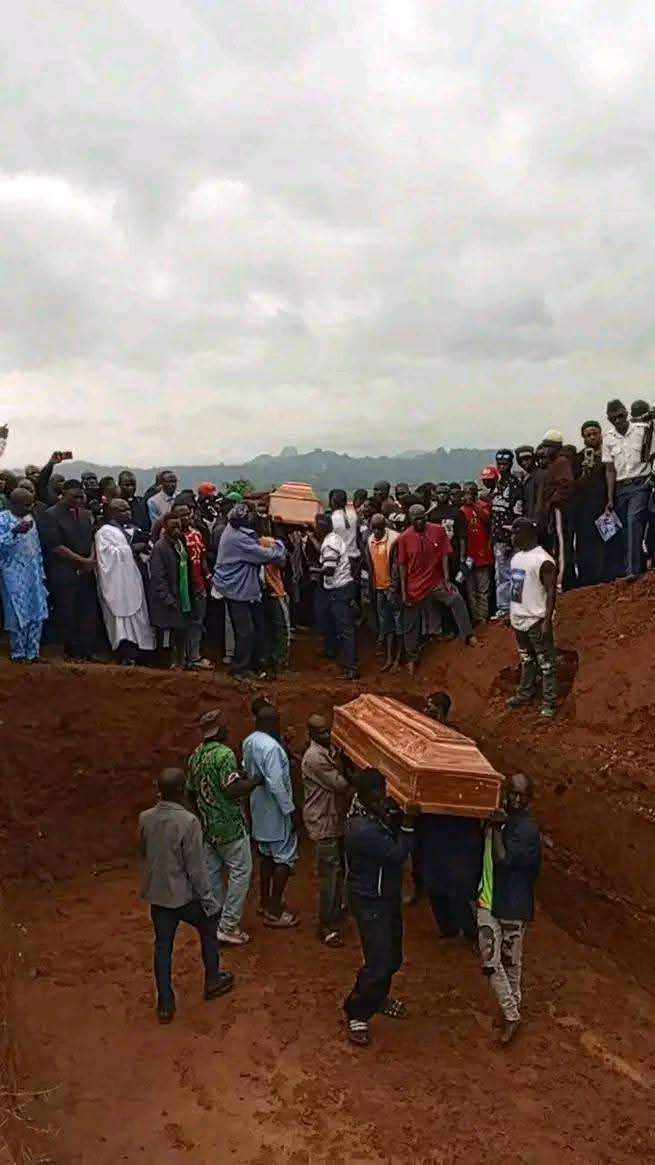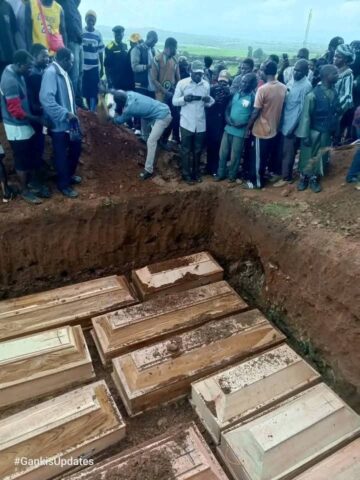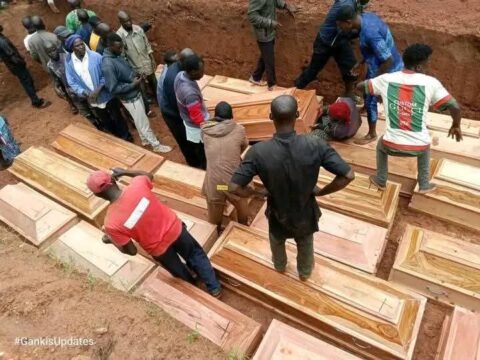By: Joy Musa
A wave of grief swept through Bindi-Jebbu village in Riyom Local Government Area of Plateau State as families and community members gathered for the mass burial of 27 villagers killed in a deadly attack earlier this month. The victims mostly farmers, including women and children were slain in the early hours of July 15 when armed assailants stormed the village, razing homes and leaving a trail of devastation across eight settlements.
Local leaders and youth groups have identified the attackers as suspected Fulani militia, reigniting longstanding tensions over land, security, and ethnic relations in Nigeria’s Middle Belt. The Berom Youth Moulders-Association (BYM) described the incident as “cold-blooded terrorism” and accused security forces of failing to act on prior intelligence.
Riyom LGA Chairman Hon. Bature Shuwa, speaking at the burial, mourned the dead and called for justice. “We remember them not just as victims, but as fathers, mothers, children, farmers, neighbours, and friends. We will not forget. We will not be silent. And we will not rest until our communities are safe,” he said.
The attack has sparked renewed criticism of President Bola Ahmed Tinubu’s handling of national security. Critics argue that his administration has failed to curb recurring violence in Plateau and other parts of Nigeria, despite promises of reform.
Security adviser Nuhu Ribadu has also come under fire, with some accusing him of ineffective strategy and misplaced negotiations with extremist groups.
Political commentators warn that the killings could become a flashpoint in future electoral contests, drawing parallels to similar rural massacres under previous administrations.
Community leaders are calling for a state of emergency, the establishment of state police, and compensation for the victims’ families.
As the nation mourns, the people of Bindi-Jebbu demand not only justice but a future free from fear.









